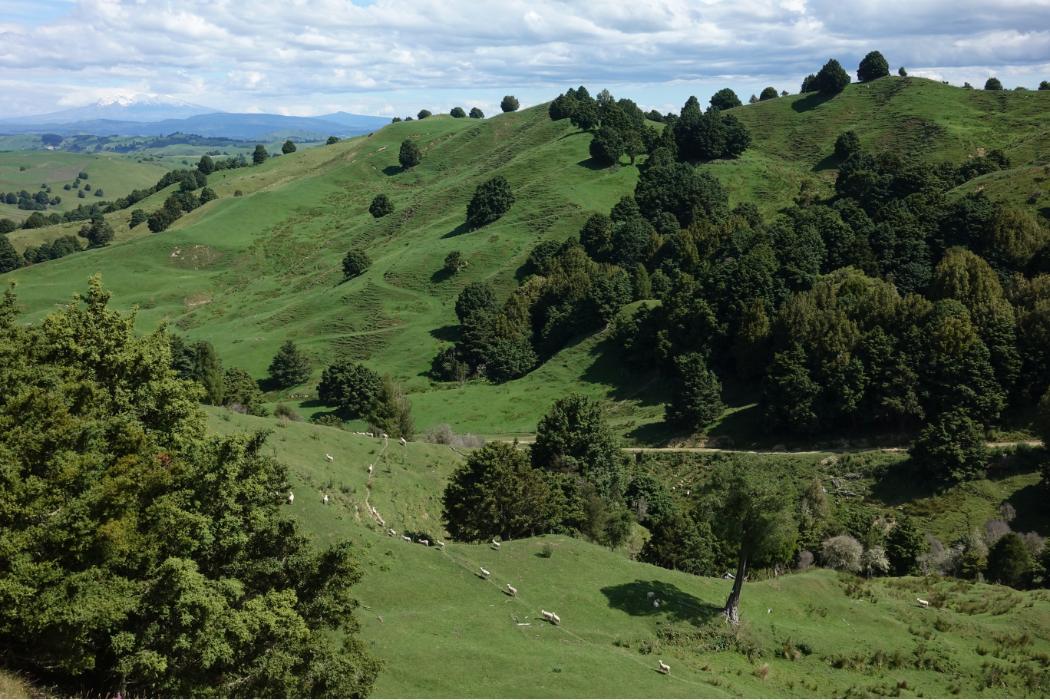Making the farm plan fit together
As the calls come for more transparency in farming operations, Rachel Joblin outlines the benefits of having a full and detailed integrated farm plan.

As the calls come for more transparency in farming operations, Rachel Joblin outlines the benefits of having a full and detailed integrated farm plan.
It is widely expected that businesses operate in a more sustainable manner by reducing any potential environmental impacts whilst ensuring business viability is managed. Integrated farm planning is about farmers understanding their business and farm. It is about using this knowledge to lift sustainability and productivity. Third parties to our farming businesses want to know more about how farmers meet and intend to continue meeting good farming practices.
Much has been published and discussed on what sustainability of our food systems, country and world looks like. The definition of sustainable is wide and is considered to include environmental, financial and social parameters. Domestic and international consumers and markets have a view that producers are expected to meet sustainability goals in a verifiable way. Farmers have long held the belief that farming in New Zealand is a sustainable process and are now coming under pressure to measure their efforts against evolving metrics. The definition of what good is, is changing. Agreed standards and processes are being developed in order to be able to verify on-farm standards if we are to achieve commercial benefits.
While an Integrated Farm Plan (IFP) does not define sustainability, it is a way to develop strategic thinking and bring verifiable documentation to one place.
A farming business of the future will need to be able to operate and demonstrate to stakeholders the value of its products and the way they are produced.
The thinking and decision making that occurs when developing a plan can strengthen the business to withstand economic, climatic and regulatory changes as well as the awareness and preparation for opportunities as they arise.
Three-pronged approach
IFPs are a way to formalise much of what happens on a farm, in a format that can be shared with others. The reasons for having one typically fall into one or more of three broad categories – business, regulatory and financial.
Businesses become stronger when time is given to plan, document and utilise good farming practices. This can enhance efficiency within the business through reduced cost or improved productivity. It can support the reputation of a business and provide some advantage when attracting people to work within and alongside the business.
Regional and national regulations around natural and human resource management require planning, modern farming practice and recording of activities. Farm assurance programmes also require evidence of best practice farming to maintain our market access.
The third good reason to have an IFP is to plan for the financial success of the enterprise, manage risk, and attract finance that may not otherwise be available. Through the IFP process, projects and investment opportunities may be identified.
When deciding the extent of their lending and investment in the NZ agriculture sector, banks and investors can refer to a recently developed, consistent and clear set of sustainable banking standards, the Sustainable Agriculture Finance Initiative guidelines. Using this risk assessment approach will also meet the growing environmental, social and governance requirements of international capital providers. The likely benefits of this approach include mitigating farmers and growers long-term risk, highlighting gaps in farming practices, opening the sector to new opportunities, and potentially lowering the cost of finance than would otherwise be available.
Having a plan that can be used to compare forecasts to actual outcomes will foster a pattern of continuous improvement whereby change can be measured and celebrated.
Meeting customer expectations
The expectations of meat and produce consumers are increasing. Our products are compared to those produced in other systems, countries, and non-farming systems. Expectations that human resources, natural resources and biosecurity are managed in a way that is considered sustainable and equitable are more recent additions to best-practice management.
The basic components of a plan would include identifying where you want to take your business, what resources are available, the risks associated and what actions need to occur to move in the desired direction. Financial, human, soil, nutrient, water, air and livestock resources should be covered by the plan. An IFP could support farming businesses on the way towards better market access and potential premiums with Farm Assurance Programme Plus accreditation. Livestock processors can provide the information required for this, (see p42).
The New Zealand Government has identified the opportunity to invest in integrated farm planning. The Ministry for Primary Industries’ (MPI) publication Good Farm Planning Principles: Towards integrated farm planning outlines the components considered to be necessary in an IFP. Recently MPI awarded funding of $14.4 million across 37 organisations under the Integrated Farm Planning Accelerator Fund to develop and deliver tools and resources for farmers and growers. The projects are wide ranging and include template creation, workshops, digital wallets and online learning modules. BakerAg is the recipient of funds that will be used to run workshops starting in March for sheep and beef farmers in the lower North Island that will step them through creating their own IFPs.
Several of the fund recipients are undertaking work to simplify collection, storage and security of data. Having data that can be easily used across government sectors, processors, financiers and within a business will streamline information in an age where farmers are dealing with an increasing level of business administration and frustration at duplication. Of course, we all hope it brings financial reward to farmers too.
- Rachel Joblin is an ag consultant with BakerAg.




